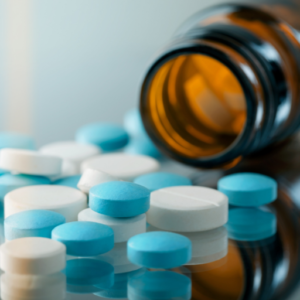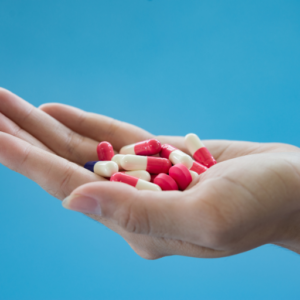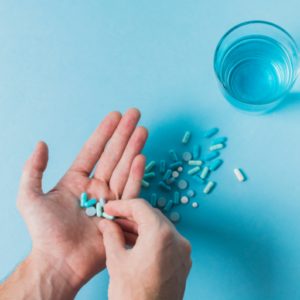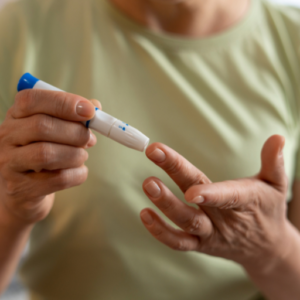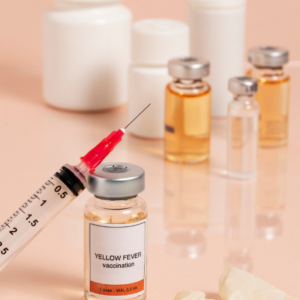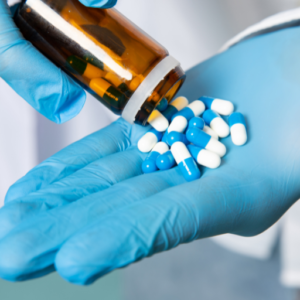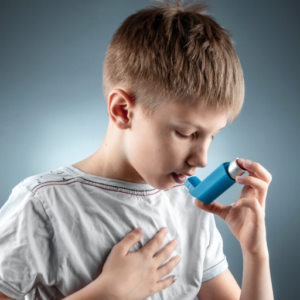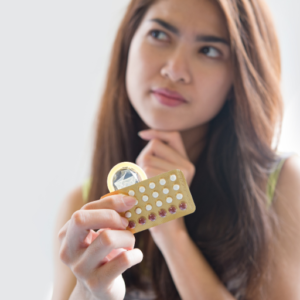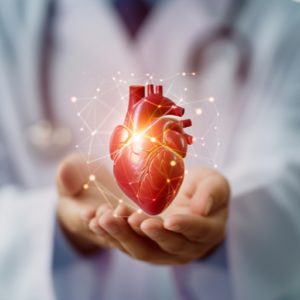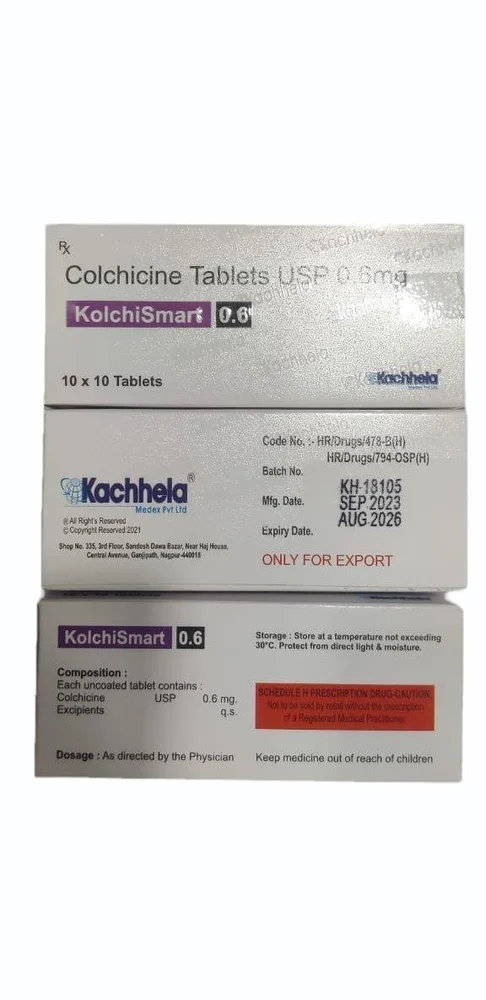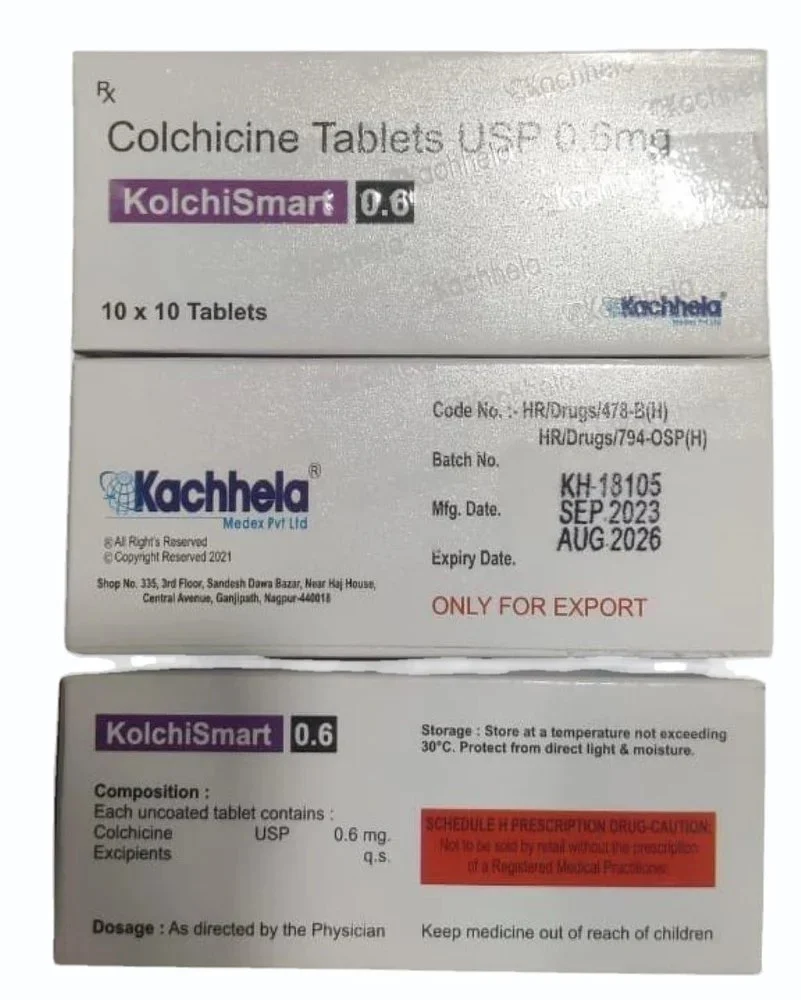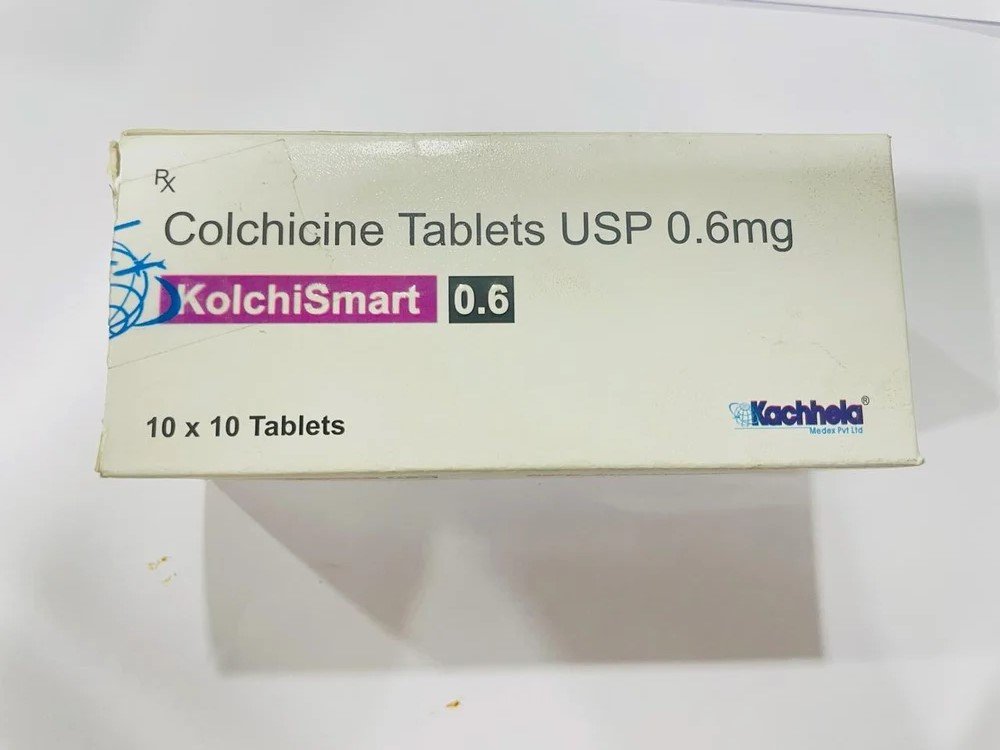Kolchismart 0.6mg
| Package | Per tablet | Savings | Price |
|---|---|---|---|
| 180 tablets | $0.1 | $6.66 | $24.66 $18 |
| 150 tablets | $0.1 | $5.55 | $20.55 $15 |
| 120 tablets | $0.11 | $3.44 | $16.44 $13 |
| 90 tablets | $0.11 | $2.33 | $12.33 $10 |
| 60 tablets | $0.12 | $1.22 | $8.22 $7 |
| 30 tablets | $0.1 | – | $4.11 |
What is this medicine?
KOLCHISMART 0.6 mg contains Colchicine, an anti-inflammatory medication used primarily to prevent and treat gout flares. It may also be used for Familial Mediterranean Fever (FMF) and occasionally for pericarditis. It works by reducing inflammation caused by uric acid crystals in joints.
What should I tell my health care provider before I take this medicine?
They need to know if you have any of these conditions:
-
kidney disease
-
liver disease
-
heart disease
-
gastrointestinal problems (e.g., stomach ulcers, colitis)
-
blood disorders
-
if you are taking certain antibiotics or cholesterol-lowering medicines
-
any history of muscle weakness or nerve problems
-
an unusual or allergic reaction to colchicine or any other ingredients in this medicine
-
pregnant or trying to get pregnant
-
breast-feeding
How should I use this medicine?
Take this medicine by mouth with a full glass of water. Swallow the tablet whole. You may take it with or without food. Follow the dosage prescribed by your doctor exactly. Do not exceed the recommended dose, as colchicine has a narrow safety margin.
Overdosage: Taking too much colchicine can be fatal. If you suspect an overdose, contact a poison control center or emergency room immediately.
NOTE: This medicine is only for you. Do not share this medicine with others.
What if I miss a dose?
If you miss a dose, take it as soon as you remember. If it’s almost time for your next dose, skip the missed dose and resume your regular schedule. Do not take double or extra doses.
What may interact with this medicine?
-
Clarithromycin, erythromycin, or other macrolide antibiotics
-
Ketoconazole, itraconazole (antifungal drugs)
-
HIV protease inhibitors (e.g., ritonavir)
-
Statins (e.g., simvastatin, atorvastatin)
-
Cyclosporine
-
Verapamil or diltiazem
-
Grapefruit juice
-
Other medicines that may affect the liver or kidneys
This list may not describe all possible interactions. Give your health care provider a full list of the medicines, supplements, or herbal products you use. Also mention alcohol use, smoking, or recreational drug use.
What should I watch for while using this medicine?
-
Follow up regularly with your doctor to monitor for side effects or signs of toxicity.
-
Let your doctor know if you experience muscle pain, weakness, numbness, or tingling, especially if you’re on cholesterol-lowering medicines.
-
Avoid grapefruit or grapefruit juice as it can increase the risk of side effects.
-
Stay hydrated, especially if you are also taking diuretics.
-
Inform your doctor if you are pregnant, planning to become pregnant, or breastfeeding.
-
Do not drink alcohol excessively—it can worsen gout symptoms.
What side effects may I notice from this medicine?
Serious side effects to report immediately:
-
Severe diarrhea or vomiting
-
Muscle pain or weakness
-
Numbness or tingling in fingers or toes
-
Unusual bleeding or bruising
-
Fever, chills, sore throat
-
Yellowing of skin or eyes (jaundice)
-
Signs of an allergic reaction: rash, itching, swelling of the face/lips/tongue/throat, difficulty breathing
Common, usually less serious side effects:
-
Nausea
-
Diarrhea (mild)
-
Abdominal pain
-
Headache
This list may not describe all possible side effects. Contact your healthcare provider if you notice anything unusual.
Where should I keep my medicine?
-
Keep out of reach of children.
-
Store at room temperature between 20°C to 25°C (68°F to 77°F).
-
Protect from moisture and light.
-
Do not use after the expiration date.
-
Safely discard any unused medicine.




